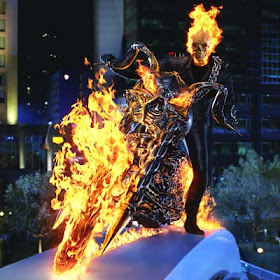In many religious traditions, hell is a place of suffering and punishment in an afterlife, often after resurrection. Religions with a linear divine history often depict hells as endless. Religions with a cyclic history often depict a hell as an intermediary period between incarnations. Typically these traditions locate hell under the Earth's external surface and often include entrances to Hell from the land of the living. Other afterlife destinations include Heaven, Purgatory, Paradise, and Limbo.
Punishment in Hell typically corresponds to sins committed during life. Sometimes these distinctions are specific, with damned souls suffering for each sin committed, but sometimes they are general, with condemned sinners relegated to one or more chamber of Hell or to a level of suffering.
But what stature does the meaning of HELL hold in the modern world? It no longer represents infernal punishment or a place for the dammed to suffer an eternity for their sins in life. The concept of hell has become a joke, quite literally.I say this because;
First off, the use of Hell as an exclamation:Used to express annoyance or surprise. A far cry for it's originating use.
 Second, the media representation of hell in movies, music, television, etc has devolved into nothing short of a parody of it's former self. When the concept of hell started it was to stand for the worst place in the world where the worst atrocities took place. Now cartoons depict dimwitted characters entering hell with ease and escaping even easier. Songs after song are produced proclaiming deals with the devil, and surviving the forces of hell, all preformed by self-infatuated megalomaniacs with delusions of grandeur.
Second, the media representation of hell in movies, music, television, etc has devolved into nothing short of a parody of it's former self. When the concept of hell started it was to stand for the worst place in the world where the worst atrocities took place. Now cartoons depict dimwitted characters entering hell with ease and escaping even easier. Songs after song are produced proclaiming deals with the devil, and surviving the forces of hell, all preformed by self-infatuated megalomaniacs with delusions of grandeur.Now don't get me wrong, by no means am I saying I believe in the notion of Hell, or am I saying anyone that shows signs of a megalomaniac is bad for writing a song about a deal with the devil or what ever the case may be, because music is music and everyone has different reasons for what they do, self-expression, fame, creativity, etc.

Third, the idea of hell has over the years become diluted by it's saturation overuse and affiliation with inferior content. A few hundred years ago if someone was to merely mention the word hell in a conversation it would be so very serious and taken with the utmost regard. Today the word is used frivolously in conversation so much so that it has devolved into a minor curse. Society as a whole have become so desensitized to the word hell, as is the case with other forms of slander, that it has lost it's meaning and identity.
Fourth, the original usage and meaning of Hell was a place of suffering and punishment in an afterlife, Hell was to depict what a life of evil would lead to, most likely as an institution geared towards frightening citizens away from the sins and crimes against the fellow human that were of the day and age. An act of social deviance, severe enough, would result with the doer being cast down into the fiery abyss to suffer worse than anything imaginable.
In conclusion, I remain impartial to the ever changing meaning and usage of Hell because after all one of the things I really enjoy about the English language is how new words are perpetually incorporated, discontinued and evolved over the years. Like a constant machine of consumption the English have throughout history explored new lands and when a new land was already inhabited the English would conquer but in doing so they would incorporate the native ways of life into the newly created lands and in turn bring parts of the new ways of life back to England and spread to other colonies, and thus further advancing the greater whole. Now in this age of technological advancements we have already seen changes in language, such as LOL, and we will continue to see many more advances, whether they truly be conceived as a step forward or back. Or consider the utter complexity of language, taking this into consideration that perhaps language cannot be simply conceived in the 2D (two-dimensional) and more critical analysis is required to understand the full complexity of it all.


